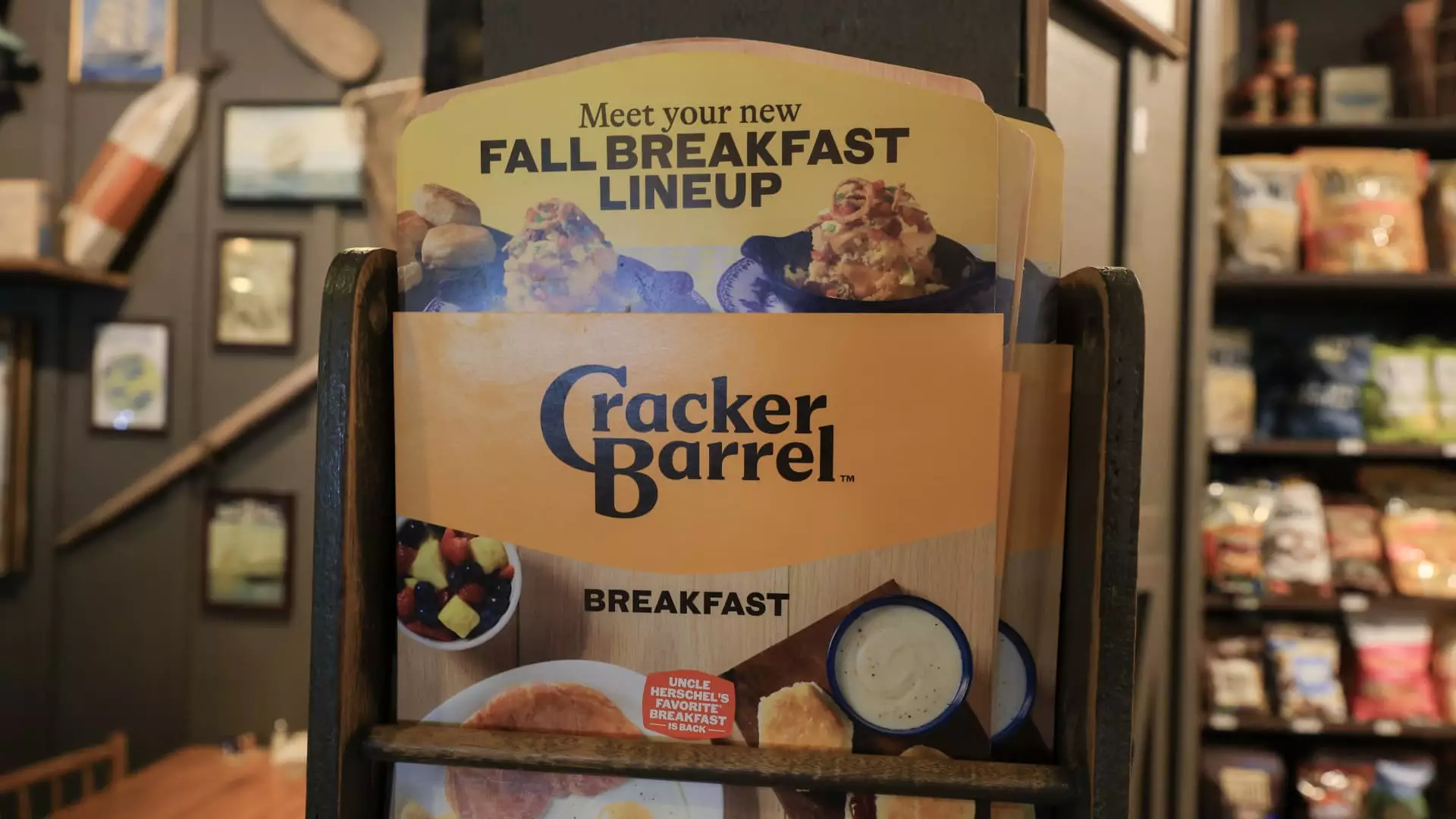Cracker Barrel’s decision to overhaul its iconic logo signals more than just a visual update; it represents a contentious attempt to reposition the brand in a rapidly evolving cultural landscape. By stripping away the familiar image of a man leaning against a barrel—a symbol rooted in nostalgia and authenticity—the company risks alienating its core customer base. Historically, Cracker Barrel has built its identity on a cozy, “old country” aesthetic that evokes comfort, tradition, and a sense of American heritage. The removal of “old country store” from the logo, coupled with the minimalist text on a yellow background, signals a departure from these values in favor of a more neutral, forgettable branding.
This move, while aimed at strategic renewal, appears to undercut the very essence that made Cracker Barrel a beloved family destination. When a brand’s visual identity is so tightly intertwined with its story, changing it can feel like disowning history. In this case, the company’s justification—colors inspired by eggs and biscuits—further reduces the branding to superficial elements rather than meaningful symbols. Effectively, this signals a shift from authenticity towards a more sanitized, corporate image that prioritizes modern aesthetics over cultural resonance.
The Political and Cultural Backlash: A Symptom of Divided America
The fallout from this rebranding effort illustrates how fiercely identity and cultural symbols have become battlegrounds in the American social fabric. Conservative voices, including high-profile figures like Donald Trump Jr. and Robby Starbuck, have decried the change as an attempt by corporate elites to erase traditional American values under the guise of diversity and inclusion. Their critique suggests that the move is less about modernizing the brand and more about kowtowing to progressive ideologies, which they associate with “wokeness” and political correctness.
This backlash is emblematic of a broader tendency among certain segments of the population to scrutinize corporate decisions through a political lens. To them, brands are not merely commercial entities but cultural signifiers. When corporations seemingly abandon their roots in favor of more generic, inclusive branding, they are accused of degrading national traditions and diluting their authentic identity. Such accusations, whether justified or not, resonate deeply in an environment where identity politics have increasingly infiltrated consumer preferences and corporate strategies.
The Market’s Response: Symbolism Matters in Business
Cracker Barrel’s stock plunge—about 10% shortly after the logo change—underscores that branding isn’t just symbolic; it has tangible economic ramifications. Investors and consumers respond quickly to signals of authenticity, consistency, and cultural alignment. The visible dissatisfaction on social media and declining market confidence reflect a suspicion that the company’s new visual identity undermines its core value proposition.
Moreover, the interior redesign controversy amplifies this fear: a shift towards a more “modern” and “lighter” look is perceived as a departure from the warm, rustic charm that customers expect. This underscores the centrality of aesthetic coherence in maintaining brand loyalty. When consumers feel that a company is altering its identity to fit transient social trends, trust erodes, and loyalty declines—precisely what Cracker Barrel appears to be experiencing.
Rebranding in a Divide: A Gamble on Cultural Acceptance
Cracker Barrel’s move reveals a fundamental tension in American capitalism: balancing the desire to modernize with the risk of alienating traditional patrons. While the company insists it remains committed to its “rich history of country hospitality,” the disconnect between its stated values and the perceived message of its branding choices suggests otherwise. The company’s leadership might believe that embracing a more inclusive, diverse aesthetic aligns with long-term growth, but the current reaction indicates a missed understanding of its audience’s core identities.
Ultimately, the controversy exposes how branding today is no longer just about marketing; it’s a political act. In a time when symbols carry heavy ideological weight, companies like Cracker Barrel may underestimate the resistance they will face when they choose to reshapetheir image. As the cultural debate intensifies, such rebranding efforts risk becoming casualties of broader societal divisions—a dangerous gamble that may cost more than they bargained for in brand loyalty and economic stability.

